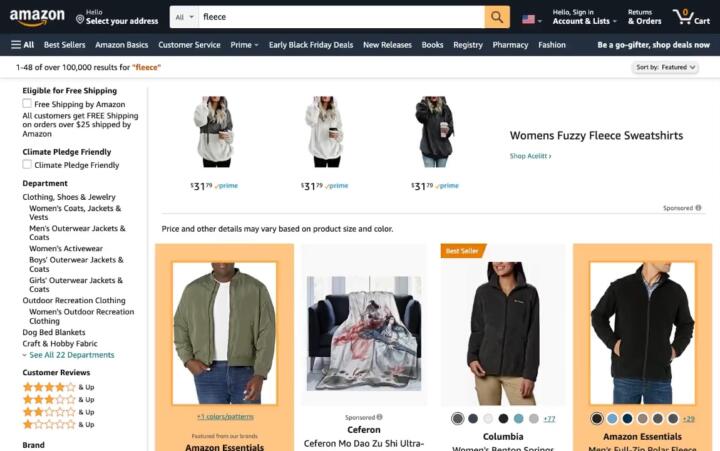The Markup has won the Gerald Loeb Award in the personal finance and consumer reporting category for our investigative series “Amazon’s Advantage,” which found that Amazon gives itself a leg up against competitors when deciding what order to place products in its search results and selecting the default seller for individual items.
In “Amazon Puts Its Own ‘Brands’ First Above Better-Rated Products,” we found that Amazon systematically listed products from its private labels and exclusive brands higher in search results than items from competitors that had better customer ratings and indicators of higher sales. This investigation found that simply knowing whether a product was from an Amazon brand or sold exclusively on Amazon could predict whether Amazon would list it at the top of search results about 70 percent of the time.
In “When Amazon Takes the Buy Box, It Doesn’t Give It Up,” we found that when an item’s default seller is Amazon, it almost always stays that way. Since Amazon is a third-party marketplace where multiple merchants can compete to sell the same product, becoming the default merchant is called winning the buy box. We found that other merchants almost never dethrone Amazon as the default seller, and that third-party sellers that don’t use Amazon’s fulfillment services are seldom given the buy box at all.
Use Our Extension to See Amazon’s Brands Yourself
Our investigation also found that Amazon does not consistently disclose to shoppers which products are Amazon-brand products or exclusives, so The Markup built the Amazon Brand Detector to add transparency to shopping on Amazon.
Our browser extension identifies Amazon’s in-house and exclusive products and makes their affiliation to Amazon clear by placing a box around them in Amazon’s signature orange. This happens live while shoppers browse the website.
The Amazon Brand Detector extension is available for Chrome (and other chromium-based browsers) and Firefox browsers.
Impact
After publication, members of the House Judiciary Committee sent a letter to Amazon saying the company’s representatives “may have lied to Congress” and demanding that the company send sworn statements and documents to “clarify” its practices regarding the development of its brands and their treatment in search results. The committee also asked the U.S. Department of Justice to investigate. Lawmakers in the House and the Senate have also proposed legislation to prohibit certain large tech companies, including Amazon, from favoring their own products and services on their platforms.
The Markup also strongly believes in showing our work. Read how we analyzed Amazon’s treatment of its “brands” in search results.
A huge congratulations to the team that worked on the series: Adrianne Jeffries, Leon Yin, Evelyn Larrubia, Gabriel Hongsdusit, Ben Tanen, Micha Gorelick, Ritu Ghiya and Jeff Crouse.
Thanks also to James Bernal, Joel Eastwood, Simon Fondrie-Teitler, Karin Halperin, Rita Harper, Jill Jaroff, Dan Phiffer, and Maria Puertas for their contributions to the series.
Congratulations to all of this year’s Loeb Award winners.






